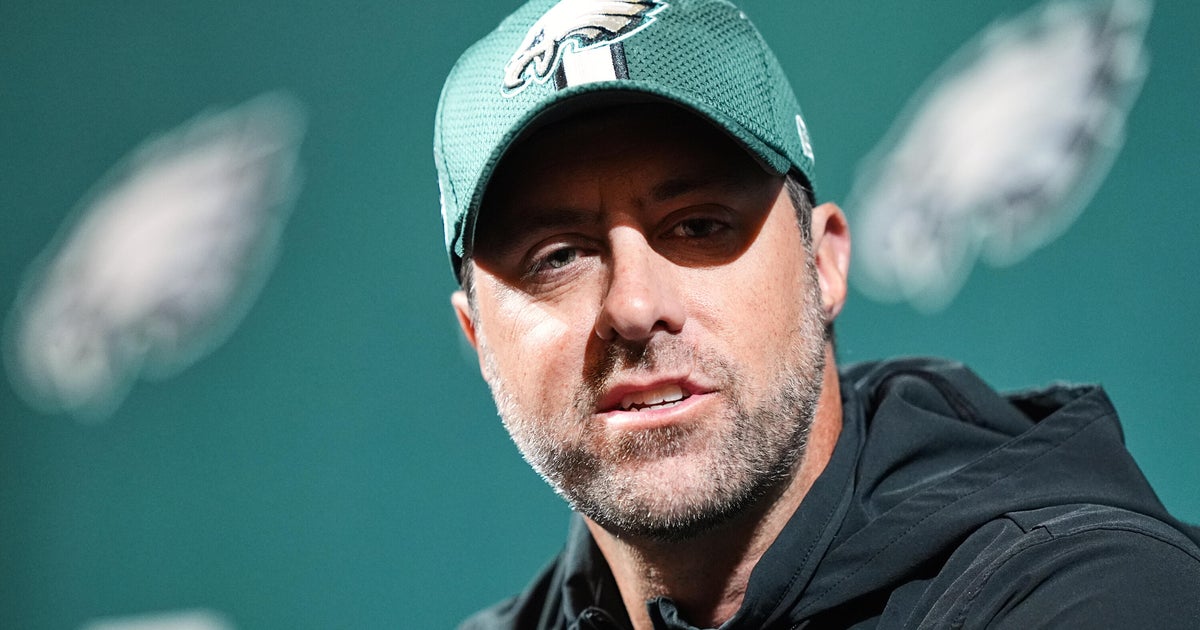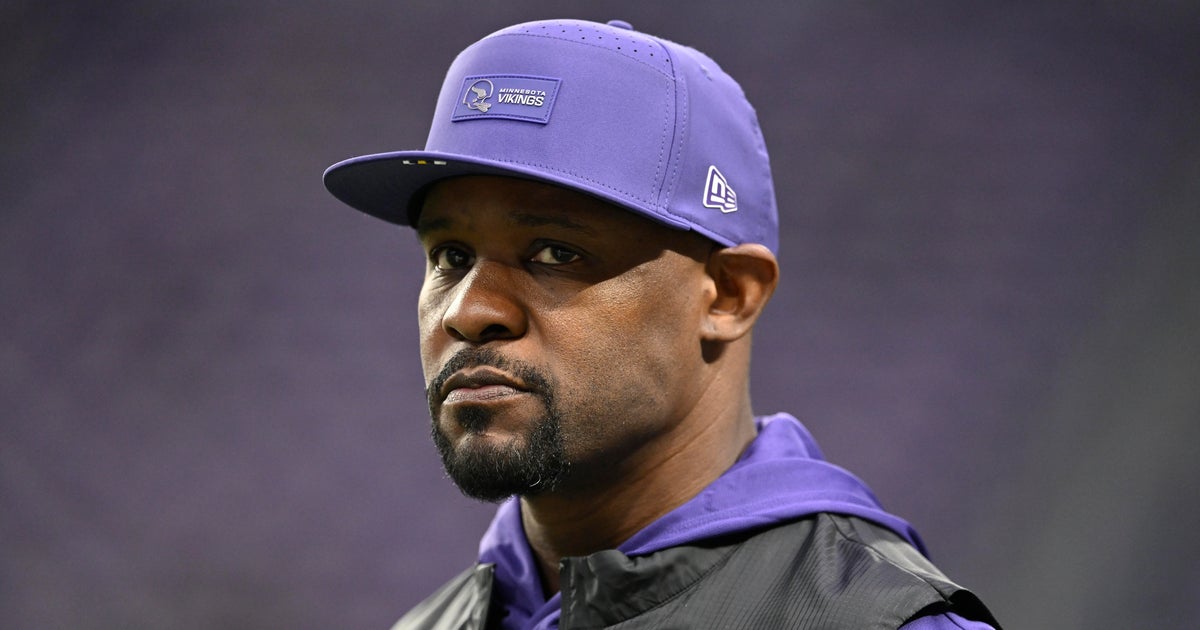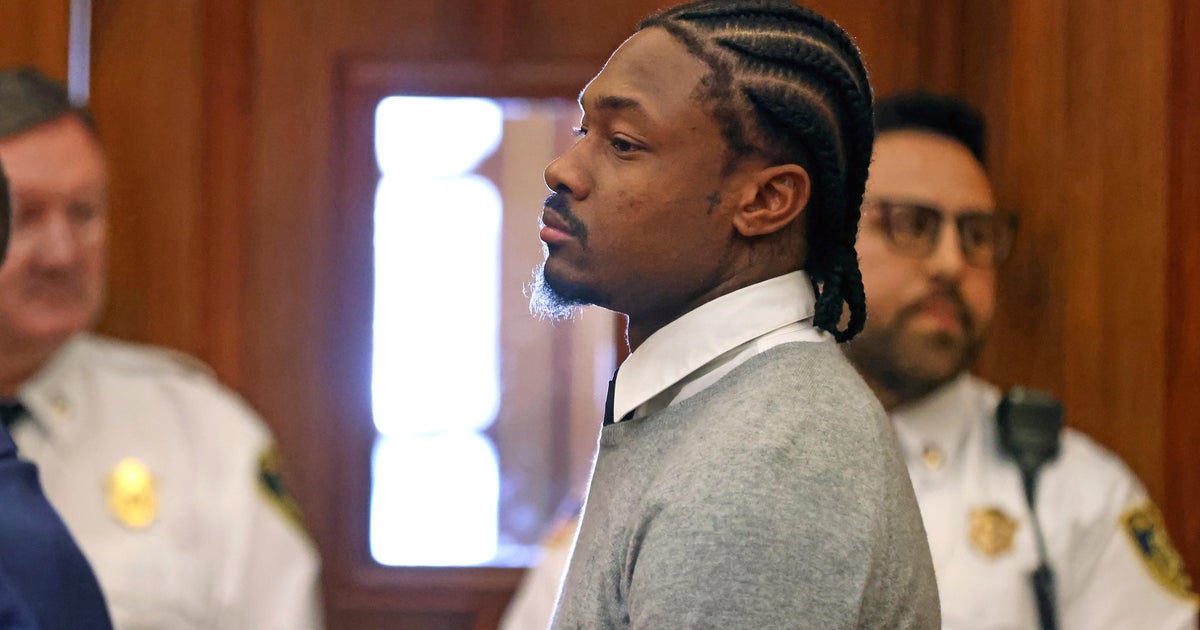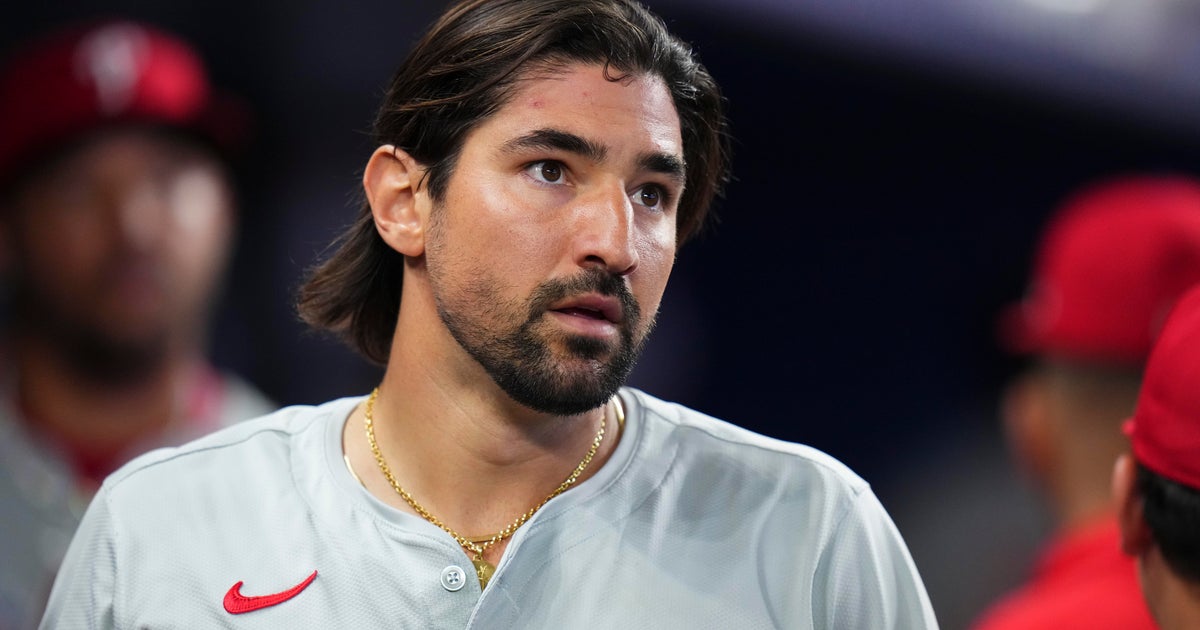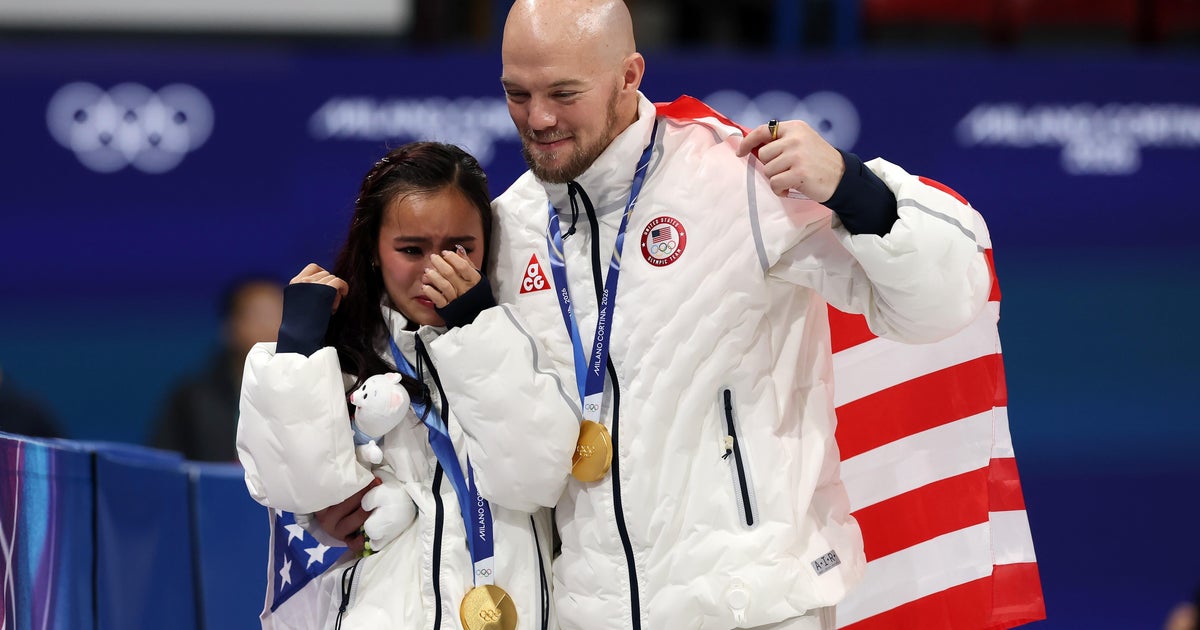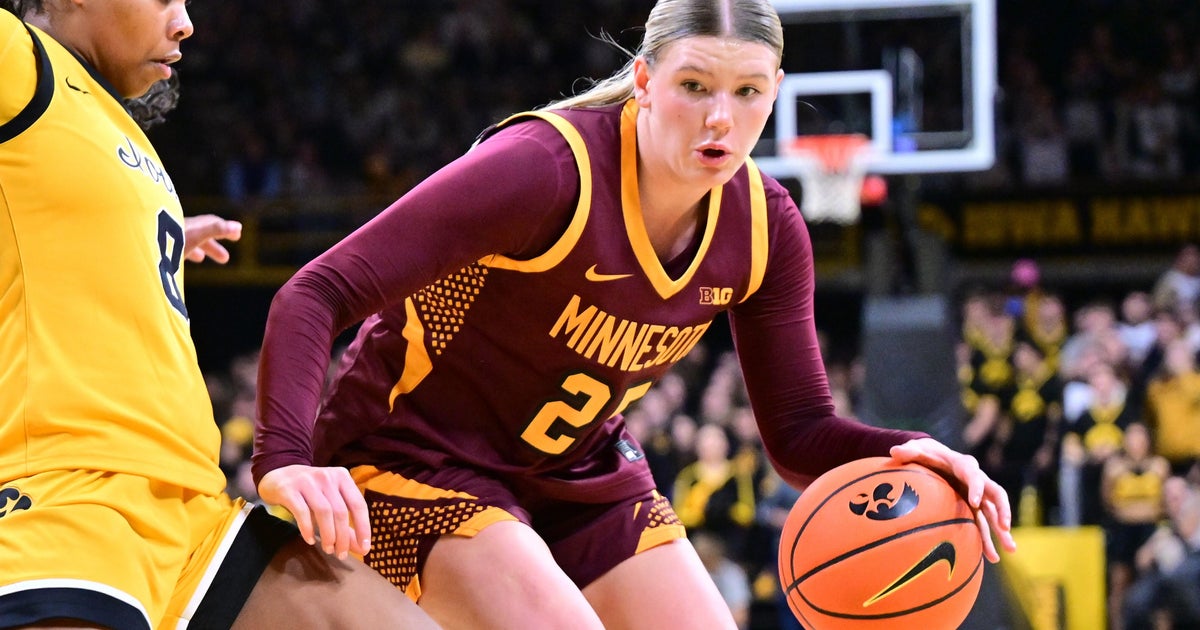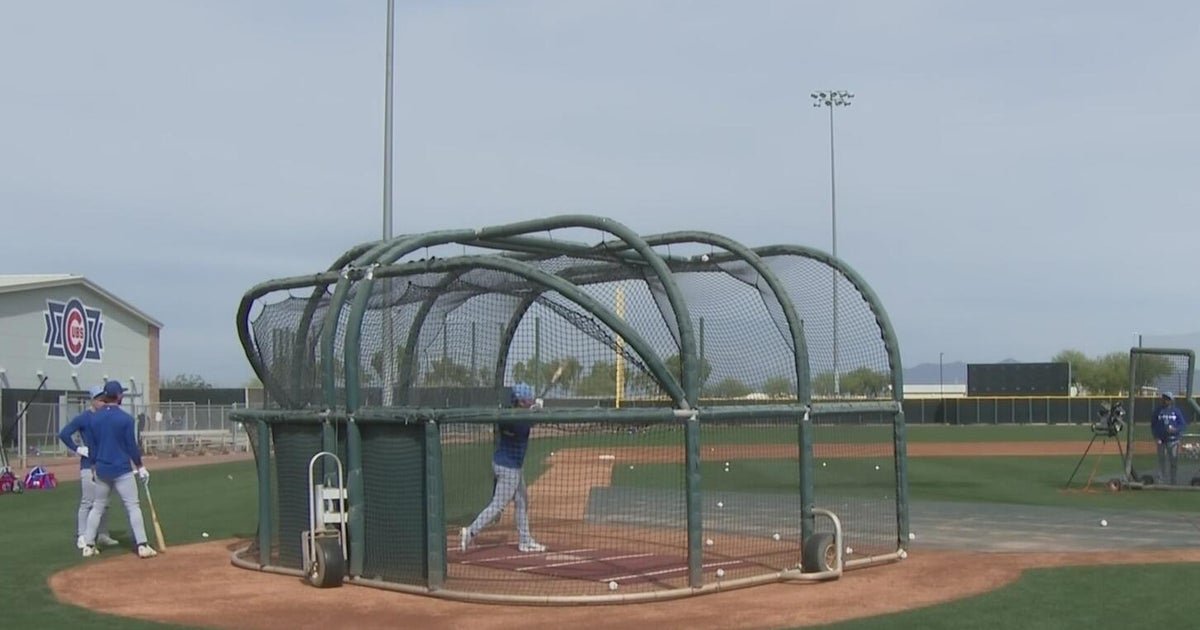Socci's Notebook: Patriots-Dolphins Will Be Won Or Lost In Trenches
BOSTON (CBS) - A few minutes into his press conference following Sunday's 23-21 loss to Buffalo, Miami Dolphins head coach Joe Philbin made an obvious point that often gets obscured in the instant analysis of every game.
"I told the guys last night," Philbin prefaced, "in the NFL season it's 17 weeks, 16 games, there's ups and downs that most teams encounter along the way."
Philbin should know. Seven weeks into 2013, his Dolphins went three up and three down, including their most recent defeat coming off a bye. Once a September surprise at 3-0, they've become an October disappointment at 3-3.
"The teams that have great character and chemistry are able to overcome those downs that are usually there," Philbin added. "I believe our guys are able to do that."
Such faith will be tested this weekend when Miami tries to reverse its downward spiral against a Patriots team that experienced enough ups and downs the past two Sundays to last a season.
One week, they staged an exhilarating finish in Foxborough. The next, they met an excruciating ending in the Meadowlands.
Within each of those games, a win over New Orleans and loss to New York, New England went up by double figures, was down in the second half and rallied late in regulation. Only, whereas the Patriots beat the Saints, 30-27; they lost to the Jets, 30-27.
Now, they too -- like their AFC East rival from Miami -- have to overcome a serious downer.
If what Philbin says of character and chemistry are true, it's a by-product of both that ultimately will put either the Dolphins or Patriots back on an upward arc.
"Execution," says New England's Julian Edelman. "Doing well in the practices and taking (to) the coaching. It all comes down to execution in critical situations. That's what we have to do."
TALE OF THE TAPE: Patriots vs. Dolphins
As a wide receiver, Edelman was speaking Thursday specifically about the Patriots offense. Needless for him to say, the same goes for every facet.
And as it always has in football, execution begins up front. Regardless of schemes and irrespective of who's lined up in the backfield or running downfield, steadying one's performance starts with a sturdy line.
Consider the plight of Philbin's Dolphins, who spent freely in the offseason to solidify their defense and surround second-year quarterback Ryan Tannehill with more skilled receivers. On offense alone, they signed wide receivers Mike Wallace and Brandon Gibson and tight end Dustin Keller during a four-day spree in mid-March.
Granted, Miami also lost the running-and-receiving threat of Reggie Bush via free agency to Detroit, before losing Keller to preseason injury. But nearing the midpoint of the regular season, it's obvious the Dolphins didn't do enough to protect their would-be franchise quarterback.
Four-time Pro Bowl left tackle Jake Long left Miami as an unrestricted free agent, signing with St. Louis in March. The Dolphins then entrusted second-year pro Jonathan Martin with the role of protecting Tannehill's blind side, and in May picked up right tackle Tyson Clabo, after his release from Atlanta.
To date, Tannehill has been sacked 26 times, limited by a right shoulder injury and guilty of 11 turnovers, including four lost fumbles. Two of those giveaways resulted in bookend scores by Buffalo in last week's 23-21 loss.
First, Tannehill was victimized on the game's third play by Nickell Robey's 19-yard interception return for a touchdown. Then, with less than three minutes left and Miami ahead, 21-20, he lost possession on a sack by Mario Williams. Seven plays later, kicker Dan Carpenter hit a game-deciding, 31-yard field goal.
The following day -- in a sense of either urgency or desperation -- Miami traded for Baltimore left tackle Bryant McKinnie. A 12-year veteran, McKinnie has 152 career starts and a 2009 Pro Bowl on his resume. But, besides off-field issues (see Vikings 'Love Boat' and Ravens 'Party Bus'), he's got a balky knee and, by his own admission, is at least 10 pounds overweight.
Whether it's McKinnie or Martin, whoever starts at left tackle in New England will face the rush of end Chandler Jones, who's coming off a two-sack performance at New York. It marks the third straight game Jones reached the opposing quarterback and gives him a Patriots-leading 6.5 sacks overall.
Yet, as poor as Miami has protected its passer, the Dolphins are coming off a 120-yard rushing performance against the Bills. True, Buffalo's defense is vulnerable against the run (28th overall). But, without injured Vince Wilfork, Tommy Kelly and Jerod Mayo, so are the Patriots.
READ: Pats Look To Get Back On Track Against Struggling Dolphins
Although New England held the Jets to 3.4 yard a carry last Sunday, New York ran effectively -- and repeatedly -- enough to seize control of the line of scrimmage as the game waned on. In all, the Jets rushed 52 times, including 12 of their 14 plays in overtime.
While there were other factors -- notably, New York's third-down success and the hurry-up Patriots' third-down failures -- nonetheless, the Jets possessed the ball for more than 46 minutes.
Meanwhile, New England's offensive line blocked well for its running mates. Before Sunday, the Jets were ranked 2nd in the NFL in rushing defense and had not allowed a starting back to average more than 3.1 yards a rush in six games.
The Patriots, however, ran 20 times for 90 yards and two scores. Stephen Ridley (11 carries for 50 yards) and Brandon Bolden (8 for 36) each gained 4.5 yards per chance.
But for the third straight game, there were problems when passing. Tom Brady was sacked four times, including a tone-setting, fumble-causing hit to start the second half. Though the Pats got the ball back, the next snap, on 2nd-and-16, led to Antonio Allen's 'pick six' to cut an 11-point lead to 21-17.
Two of the next three series also started with sacks, leaving the Patriots to confront 2nd-and-17 and 2nd-and-16. By the end of the third quarter, in which it netted no first downs and minus-five yards, New England was left to rally from a 27-21 deficit.
That period was much like the first quarter two weeks earlier at Cincinnati, where the Patriots suffered their only other loss. The Bengals dropped Brady on each of the first two series, pinning New England deep in its own end.
Cincinnati finished the day with four sacks. The following week, New Orleans totaled five. Now, after four more at New York, Brady has been sacked 13 times in three games and 20 times overall.
Of course, keeping Brady upright is the responsibility of every player and component of the offense. Backs have to pick up blitzers. Receivers have to be in the right place, at the right time, so the ball comes out of the quarterback's hand on time. Brady himself has to heed his internal clock.
That said, it's the five linemen who will stand squarely on the spot Sunday, trying to shield him from yet another pressure-producing defense. Miami has 17 sacks, including six at Cleveland in the season opener.
Cameron Wake, who has 45.5 career sacks, recorded 2.5 against the Browns before being slowed by a knee injury. Still, there are other pass-rushing threats like Olivier Vernon and Randy Starks, who've combined for 6.5 sacks.
And that's taking into account only the front four. Miami has more where they come from, plus sub personnel who bring it as well.
"The Dolphins are as good as anybody," Brady says. "You look what they do with their front four and how they rotate guys in with different guys playing in different situations, first and second downs and (when) they have their sub rushers. They have rotations with those groups, and they are all fresh coming in after the quarterback."
Brady adds an extremely important point.
"To get to the quarterback with as few guys as possible is even better, because then you have more guys for coverage," he says of the Dolphins' ability to generate pressure without necessarily blitzing from the secondary. "So this team is one that can really get there quickly, and the coverage knows it so they are really aggressive."
It's an example of the cause-and-effect relationship of football's front and back ends. Asserting control of the former makes you better everywhere else.
And it's why more than anyone else, avoiding the ups and downs of an uneven season falls on the wide shoulders of the big bodies who stand side-by-side in a straight line.
Bob Socci is in his first season as the radio play-by-play voice of the New England Patriots. You can follow him on Twitter @BobSocci.
MORE PATRIOTS COVERAGE FROM CBS BOSTON
